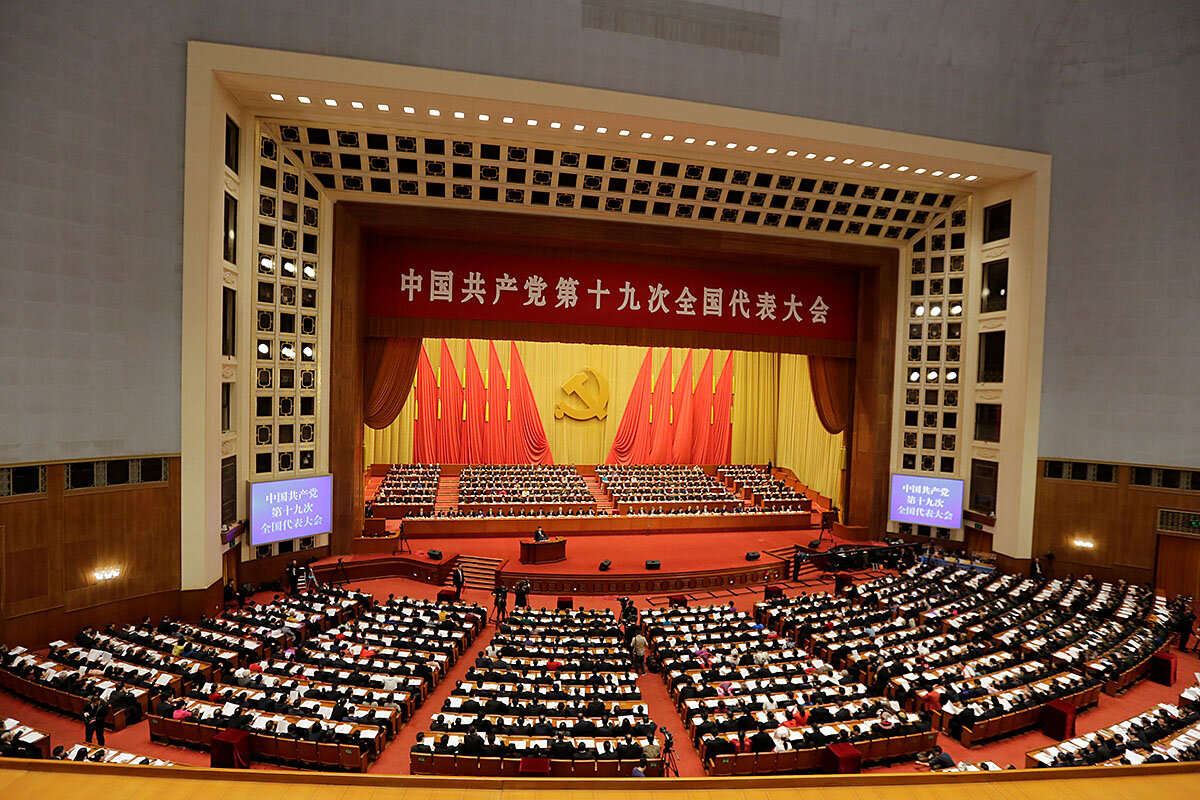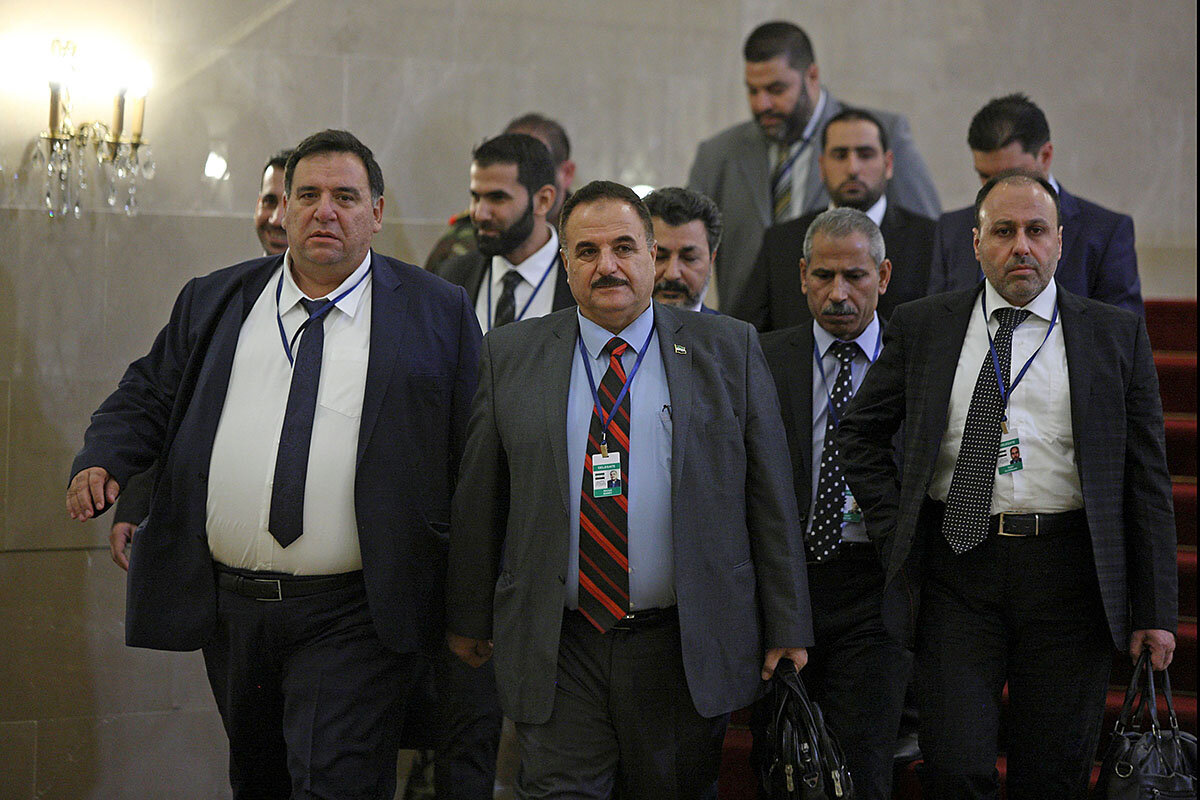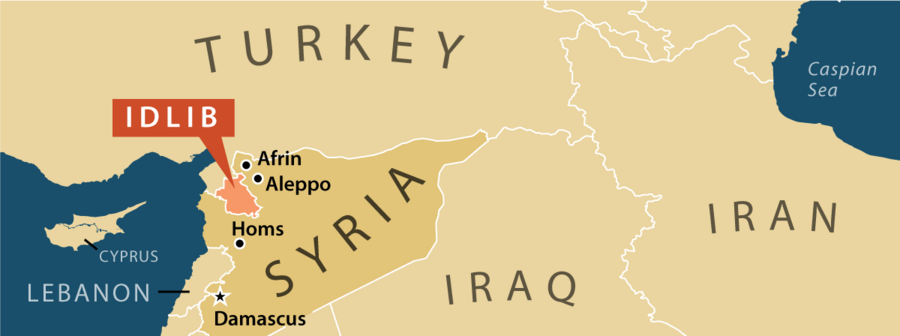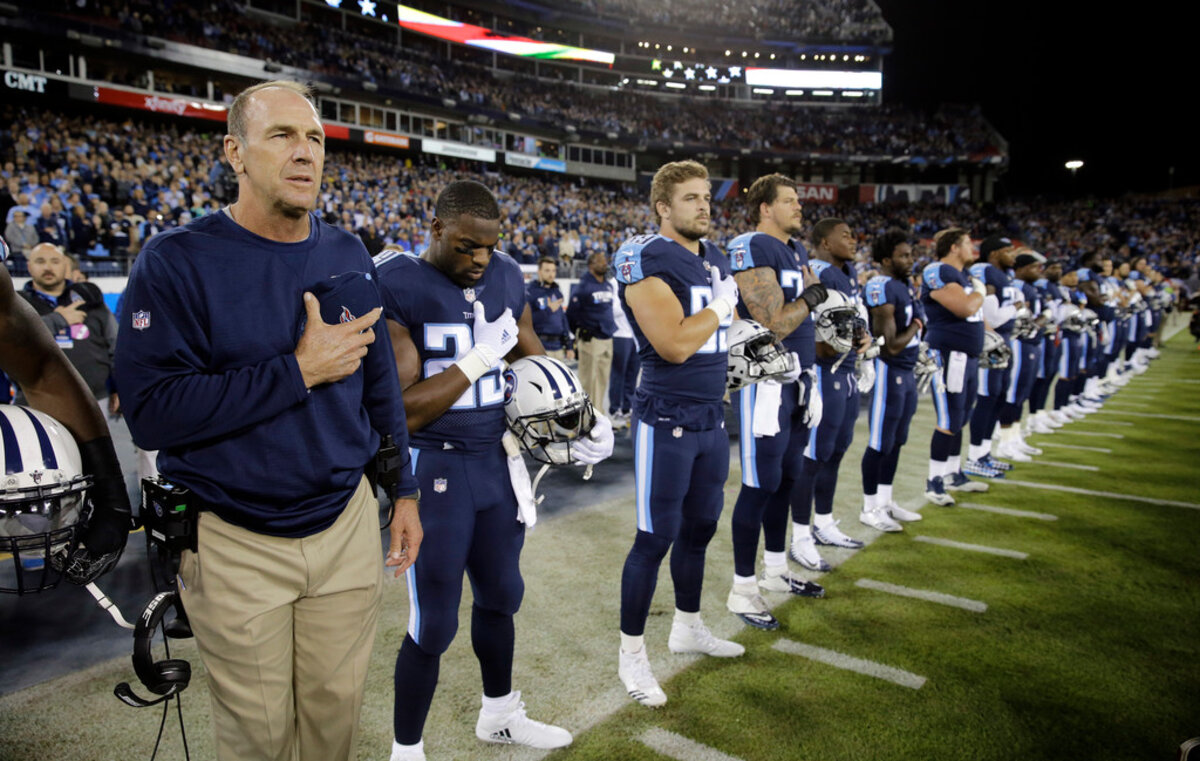Two stories have yanked the world of American sports onto front pages (and to the top of online news feeds).
In recent weeks some players in the National Football League (NFL) have knelt during the pregame playing of the national anthem to highlight what they see as racial injustice in society.
Meanwhile, the biggest college basketball recruiting scandal in many years – perhaps the biggest ever – has already taken down one of the best-known and most successful coaches, Louisville’s Rick Pitino, who has been fired by the university. Others, including four assistant coaches at major universities around the country, are now under criminal investigation just as another college basketball season is about to get under way.
The role of sports as a temporary escape from real-world issues seems to be at risk.
But underlying the harsh rhetoric of the NFL controversy, and the allegations of serious hidden wrongdoing in college basketball, seeds of reform are already sprouting.
After a meeting between NFL players and team owners Oct. 17, NFL commissioner Roger Goodell and others who attended spoke of a productive exchange of ideas that included much more than whether kneeling was appropriate.
“Very little of the meeting was about the actual anthem,” said Malcolm Jenkins, a player for the Philadelphia Eagles. “We were really more talking about solutions and how we get the results that we want to get.” No specifics were revealed, and discussions are expected to continue. But the talks suggest that alternative means for players to express their concerns may be found.
“I will tell you that our players are men of great character,” Mr. Goodell said afterward. “They have a very deep understanding and tremendous knowledge of the issues ... in all our communities. Their commitment to addressing these issues is really admirable and something our owners look at by saying, ‘We want to support you.’ ”
The college basketball scandal involves the alleged funneling of money to high school stars to influence their choice of college and who they will select as advisers and agents as they plan for careers in pro basketball. In addition to four college assistant coaches, who may have acted as middlemen distributing cash, six others, including a top employee of athletic gear maker Adidas, were indicted.
Much more is likely to be revealed in the coming months. Even the Internal Revenue Service may investigate since unreported cash payments may be involved.
Because these individuals face felony charges they may be willing to give testimony that will lead to others higher up who were involved.
The National Collegiate Athletic Association (NCAA) has now formed a special commission, led by former US Secretary of State Condoleezza Rice, to investigate. The Pac-12 Conference is also conducting an investigation, and The Associated Press reported that at least 28 individual schools have conducted or are conducting reviews as well.
At the heart of the problem is the contrast between huge amounts of money and amateur athletics. Today top college coaches receive multimillion-dollar contracts (in 39 states a college football or basketball coach is the highest-paid public employee in the state). Even bigger payouts await a select few college players who will be drafted into the professional National Basketball Association (NBA). TV contracts between the NCAA and TV networks run into the billions of dollars.
Some knowledgeable observers are calling for colleges to pay their athletes, making them professionals, ending what they claim is a charade, a system they see as already awash in payouts.
But other less drastic reforms may be possible. The “one-and-done” NCAA policy that allows top players to leave college for the NBA after their freshman year needs rethinking. So do the roles of those surrounding talented young players, including coaches and advisers.
While college basketball is dealing with an existential threat to amateurism in sports, the NFL is grappling with whether to engage with unresolved racial issues in society – and if so, how.
Athletics at their best display human achievement in noble ways. They show the value of teamwork and the ability to break barriers of physical achievement. Amateur sports should build character and prepare participants for success later in life. And professional sports can provide a stage displaying awesome athletic talent.
The light being shone on both these controversies may lead sports back to a purer form.
 Yvonne Zipp
Yvonne Zipp











